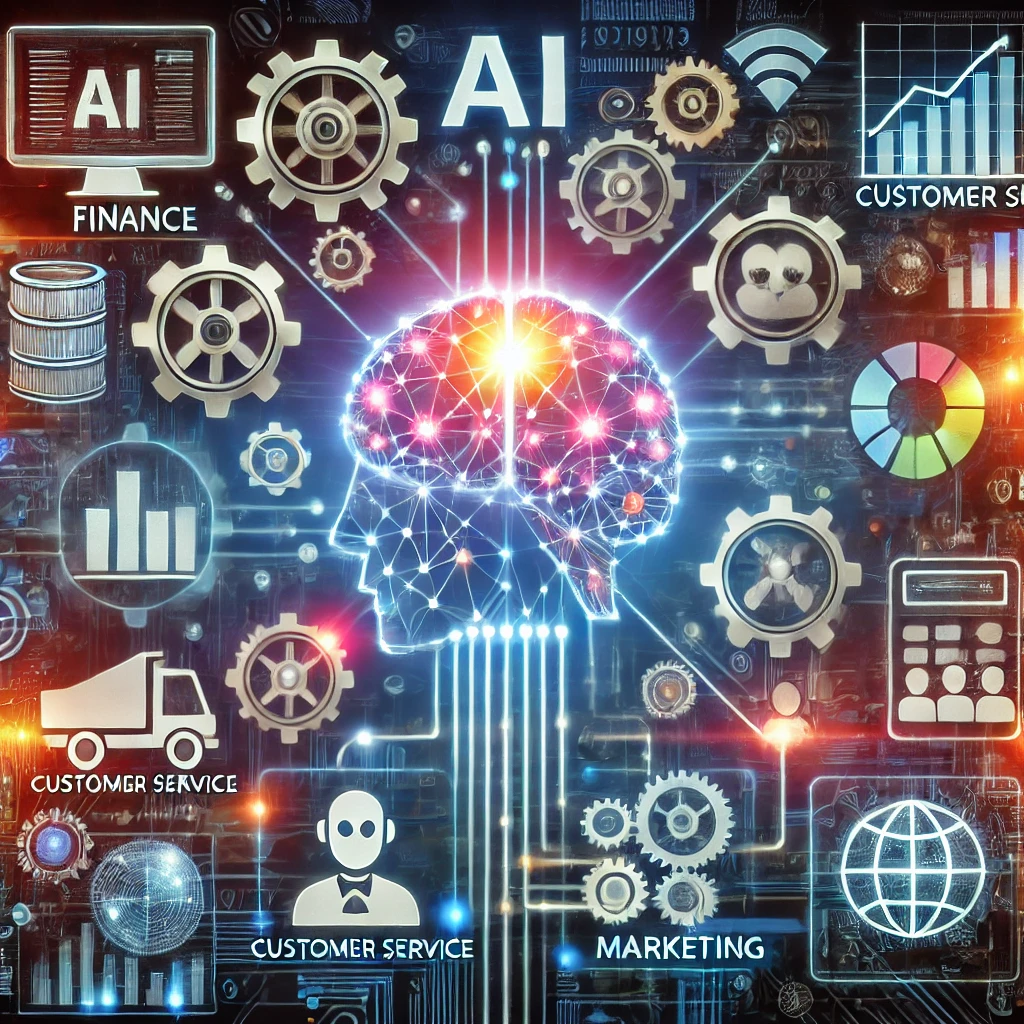
As businesses seek innovative ways to remain competitive, reduce costs, and improve efficiency, Artificial Intelligence (AI) has emerged as a crucial technology. With the rise of AI, companies are now able to automate a variety of business processes that were once considered too complex or labor-intensive. From repetitive data entry to sophisticated decision-making tasks, AI has become a driving force in the automation of business operations.
The advancement in AI technologies like machine learning, natural language processing, and robotics is helping organizations optimize their workflows and focus on value-added tasks. With AI’s ability to learn, adapt, and analyze large amounts of data in real time, companies are finding smarter ways to solve problems and streamline operations.
By harnessing the power of AI, businesses not only gain a competitive advantage but also foster an environment of innovation and growth. Whether you’re a small enterprise looking to optimize day-to-day tasks or a large corporation seeking comprehensive workflow improvements, AI offers endless possibilities to boost productivity and efficiency.
How to Leverage AI for Automation in Business Processes
One of the first steps in leveraging AI for automation in business processes is to understand how it can fit into your specific needs. AI isn’t a one-size-fits-all solution, but its adaptability allows it to be customized to various industry requirements. To begin, companies need to evaluate which processes are the most labor-intensive, repetitive, and prone to human error. These are often the best candidates for automation.
When integrating AI into business workflows, it’s essential to start small and scale up as necessary. Initially, simple tasks like data entry, scheduling, and email responses can be automated, allowing employees to focus on higher-priority tasks. As the technology matures and your team becomes more comfortable with it, more complex processes such as customer service, financial reporting, and supply chain management can be automated.
Furthermore, implementing AI for automation is not just about replacing human labor; it’s about enhancing it. AI works best when it augments human intelligence, allowing people to focus on strategic, creative, and decision-making activities. The goal is to create a synergistic relationship between AI and employees that leads to increased output and better results.
AI and Workflow Optimization
AI is becoming instrumental in optimizing workflows by analyzing processes and identifying bottlenecks or inefficiencies. Using machine learning algorithms, AI systems can monitor workflows in real time and suggest changes to improve productivity. AI can even predict future delays or issues before they happen, allowing teams to preemptively address problems.
Incorporating AI into workflow management tools helps teams become more agile. With AI’s ability to continuously learn from data, processes become more streamlined over time. For instance, AI can analyze the speed at which different tasks are completed, suggesting ways to reallocate resources for better outcomes.
In industries where time-sensitive processes are crucial, such as manufacturing or logistics, this real-time analysis can make a significant difference. AI-driven workflow optimization not only boosts operational efficiency but also enhances employee satisfaction by removing the drudgery associated with slow, outdated processes.
Predictive Analytics in Business Automation
Predictive analytics is one of the most powerful ways AI can automate business processes. By analyzing vast amounts of data, AI can forecast trends, identify potential risks, and recommend optimal actions. This helps businesses make more informed decisions faster, improving overall efficiency.
In marketing, predictive analytics can identify which customers are most likely to make a purchase, enabling companies to focus their efforts on high-value targets. In finance, it can forecast market trends or detect fraudulent activities before they cause harm. Predictive maintenance is another application, where AI analyzes data from machinery to predict when equipment will fail, allowing for preemptive repairs and reducing downtime.
Companies that leverage AI-driven predictive analytics gain a competitive edge by being more proactive rather than reactive, minimizing disruptions and capitalizing on emerging opportunities.
AI and Customer Service Automation
Customer service is one of the most visible areas where AI is making a significant impact. AI-powered chatbots and virtual assistants are now commonplace, providing real-time customer support without human intervention. These bots can handle a wide range of customer inquiries, from answering frequently asked questions to processing returns or troubleshooting issues.
By automating customer service, businesses can provide 24/7 support, reduce wait times, and offer consistent service across various channels. AI’s ability to learn from past interactions also allows it to improve over time, offering increasingly personalized and accurate responses.
For example, AI can analyze customer sentiment and adapt its responses accordingly, ensuring that the tone and content of its replies are appropriate. This helps businesses maintain a high level of customer satisfaction while reducing the costs associated with human-operated support centers.
You can also read; How to Use Artificial Intelligence for Predictive Analytics
AI for Document Processing
Document processing is another area ripe for AI automation. Traditionally, handling large volumes of paperwork has been a tedious and error-prone process. AI solutions like optical character recognition (OCR) and natural language processing (NLP) can now automate tasks like scanning, reading, and extracting information from documents.
AI-powered systems can quickly sift through contracts, invoices, or legal documents, flagging important details and ensuring that all information is captured accurately. This not only speeds up the document processing workflow but also reduces the risk of human error. For businesses in industries like law, healthcare, and finance, where documentation is abundant and critical, AI provides a way to handle paperwork more efficiently and effectively.Stay tuned for more sections on how AI impacts HR, marketing, financial automation, and more.